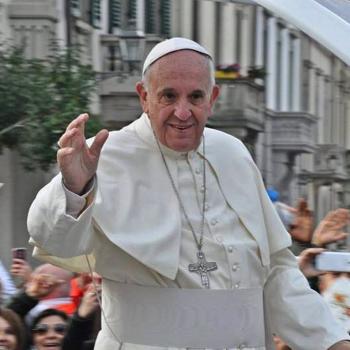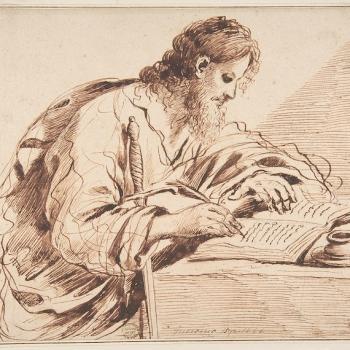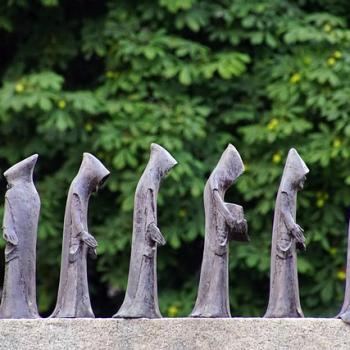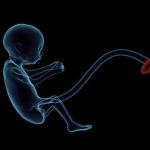
The Immaculate Conception is one of the most controversial doctrines of the Church. Rejected by the various Protestant denominations, the teaching of the Immaculate Conception has been known to confuse even Catholics.
While the objections and confusion range from the biblical basis of the Immaculate Conception to what exactly it refers to (it has nothing to do with the birth of Christ), the question I shall address in this paper is one regarding Mary and free will. I will begin by reviewing the Catholic Church’s teaching on the Immaculate Conception and the nature of free will. Finally, I will examine whether the Immaculate Conception limited, or even eliminated, Mary’s free will.
Specifically, the Immaculate Conception is the teaching that the Virgin Mary was free of original sin from the moment of her conception. It is one of the four Marian dogmas of the Catholic Church. It should be noted that the Immaculate Conception is one of the most recent teachings of the Church, having not been considered dogma until 1854.
In that year, Pope Pius IX issued the papal bull Ineffabilis Deus, in which he defined the Church’s teaching, “From the first moment of her conception, the Blessed Virgin Mary was, by the singular grace and privilege of Almighty God, and in view of the merits of Jesus Christ, Savior of Mankind, kept free from all stain of original sin.”
While the official dogma concerning the Immaculate Conception is relatively recent, the teaching that Mary received several distinctive blessings to make her a more fitting mother for Christ is evident in the work of the Church fathers. Both Justin Martyr and Saint Irenaeus write of Mary as the new Eve. Significantly, the Church fathers taught that Mary was conceived without sin and remained a virgin. Saint Ephrem put it this way, “You [Christ] alone and your Mother [Mary] are more beautiful than any others, for there is no blemish in you nor any stains upon your Mother.”
For adherents to sola scriptura, the Immaculate Conception is rejected for not being explicitly taught in the Bible. It is, however, made implicit in Scripture. In Luke’s Gospel, an angel appears to Mary and greets her with the words, “Hail, full of grace! The Lord is with you.” (See Luke 1:28). The phrase “full of grace” is significant. Grace is “The free and undeserved help that God gives us to respond to his call to become children of God, adoptive sons, partakers of the divine nature and of eternal life.” (Catechism of the Catholic Church).
Moreover, Mary is “full of grace,” full of the presence of God. And where God is present, there can be no sin; therefore, Mary was conceived without sin (i.e., immaculate). This is significant owing to the manner in which original sin is transmitted, viz, through one’s parents. Yet, if God’s grace prevented Mary from being subject to original sin, what about personal sin? Could Mary have committed sins during her life?
It is the teaching of the Church that Mary was also preserved from “All actual sin and that this initial holiness was granted to her in order to fill her entire life.” (Pope John Paul II., Catechesis at the General Audience).
Now, to commit a sin, the Catholic Church enumerates three elements that must be present. The object must be a grave matter, committed with full knowledge of the individual, and done with deliberate consent. Suffice it to say that free will must be present in order for one to commit a sin. This leads to the question posed by this paper. If Mary’s soul was so infused with God’s grace that she was prevented from the stain of original sin and kept from personal sin, can she be said to have had free will? Said differently, did grace prevent Mary from sinning even if she had wanted to?
To adequately address the question, we must define free will and examine the nature of grace and how it interacts with human nature. For the purpose of this paper, I will define free will as a power of the soul to act and choose of its own accord, independent of extrinsic influences. Grace is God working in the soul. Hopefully, this illuminates the problem. If God was working in Mary’s soul to such an extent that she was free from original sin and prevented from committing personal sins, did Mary have free will? Moreover, if sin requires an act of free will and Mary was kept from the capacity to sin, does the dogma of the Immaculate Conception lose its meaning?
If Mary did not have free will, then any claims that she was without sin are meaningless, but it is the infallible teaching of the Catholic Church that Mary was without sin; therefore, she had free will. To support this claim, I will offer two arguments.
The first argument is nothing more than Mary’s own words. “Behold, I am the handmaid of the Lord. May it be done to me according to your word.” (Luke 1:38). These words spoken by Mary suggest that she is consenting to the will of God. Since consent is a power of the will, it is clear that she had a choice.
The second argument supporting the claim that Mary had free will is predicated upon the nature of grace. Thomas Aquinas distinguishes two types of grace: operative and cooperative.
Operative grace is the act of God acting independently. This type of grace can take such diverse forms as creation and revelation. The second type of grace acts according to the mode of being in which it operates. That is to say that it works according to the nature of the thing being acted on. Since the nature of human beings includes free will, this type of grace cooperates with human beings. For this reason, it is called cooperative grace. This type of grace is evident in the Immaculate Conception, Mary cooperating with God’s grace.
One might object to this argument by stating that Mary could not have cooperated with God before her conception. One solution to this problem is to recognize that God is atemporal. Put differently, because God exists outside of time (indeed, God created time), there is no before or after for God – He “sees” all of time in one glance. This seems to be what is meant by “Before I formed you in the womb, I knew you.” (Jeremiah 1:5).
It is, of course, true that there is no self-salvation; we need a savior. However, it is also true that God does not force salvation upon us. If we are to be saved, we must accept the gift of grace, and we must cooperate with it. If this is true, then Mary provides the model for Catholic discipleship.


















